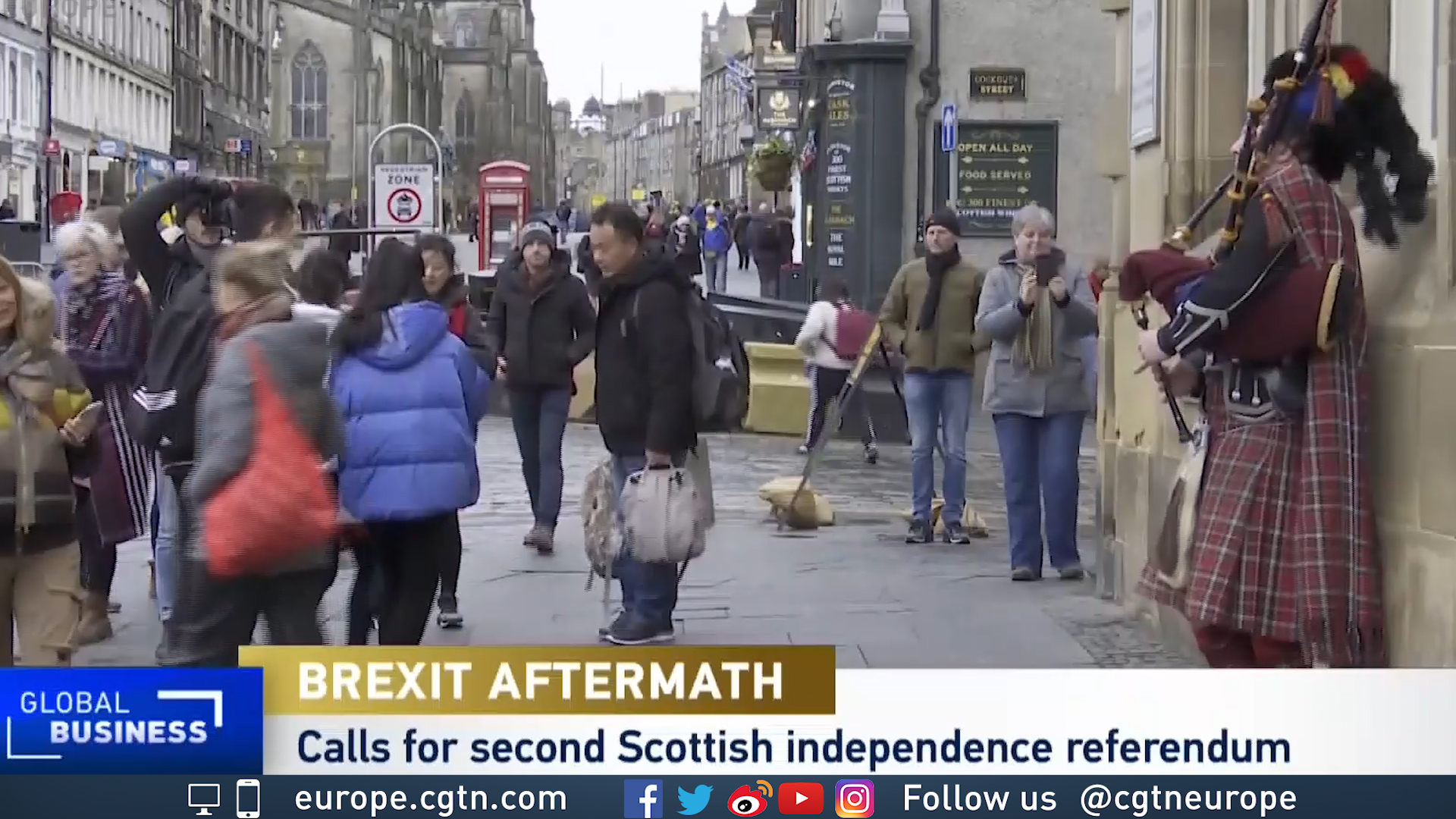
Pro-EU activists rally outside a Scottish court (Credit: AP)
Pro-EU activists rally outside a Scottish court (Credit: AP)
Scotland's first minister, Nicola Sturgeon, said the country is being "removed from the EU against its will," as the UK prepares to formally leave the bloc.
Sturgeon is now pressing for a second referendum on independence later this year, saying Scots have "a right to choose their own future."
On Wednesday, members of the Scottish parliament (MSPs) at Holyrood backed her calls, voting 64-54 in favor of holding another referendum.
However, a legally binding vote can't be held without the agreement of the British government and UK Prime Minister Boris Johnson has ruled out granting permission while he is in office – claiming the issue was settled in the 2014 referendum when 55 percent of voters in Scotland rejected independence.
02:30

Scottish National Party (SNP) MSP Alasdair Allan, argued that conditions have significantly changed following the Brexit vote.
"A huge amount has changed since 2014, a material change in circumstances and that material change in circumstances is Scotland's views on something as big as Brexit being totally ignored.
"We are losing our place in the single market, we are losing the freedom of movement of people, which is so central to our economy. We now have bigger support, we now have a majority in the Scottish parliament and we have the majority of support in the country that it should be decided here whether we have a referendum, not by Boris Johnson."
It's not just the politicians who are warming to the idea of independence.
A new poll carried out by Survation found 61 percent of Scots believe Holyrood should have the final say over a referendum, not Westminster. While a new YouGov survey on Scottish independence has 'Yes' in the lead for the first time since 2015, by 51 percent to 49 percent.
Thousands are expected to take to the streets across Scotland to protest on 31 January, when the UK officially leaves the EU.
In Edinburgh, a candlelit vigil, light shows and speeches will be held as part of the "Missing EU Already" rally.
Organizer, Mike Blackshaw, said the 'Yes' movement is gaining momentum: "Brexit has changed the format of how people see the SNP, see independence, a lot of people who were never interested in independence suddenly are now massively interested."
Despite opposition from the Conservatives, Labour and the Lib Dems, the Scottish government won its fight to keep the EU flag flying outside Holyrood. Overturning a previous decision by the parliamentary body to bring it down after Brexit.
The Conservative Party has accused the SNP of "wasting time," claiming the government is neglecting domestic issues.
Coree Brown Swan, a constitutional change expert at Edinburgh University, says an independence referendum will depend on the results of next year's Scottish parliamentary elections.
"If the SNP secures a majority government, they will have a strong case, they will run on a mandate for a referendum and it will be difficult to see how the UK government can maintain position for a long period of time. If you tell people 'no,' it would increase support and that would undermine the objectives of a UK government." Swan added: "I think an independence referendum sometime over the next decade is quite likely.”
Swan's concerns will sound familiar to those well versed in the protracted Brexit negotiations: "Rejoining the EU will be more difficult. How do you maintain those separate relationships, how do you maintain relationships with Scotland's biggest trade partner England whilst being part of the EU, without having some sort of hard border within the UK?"